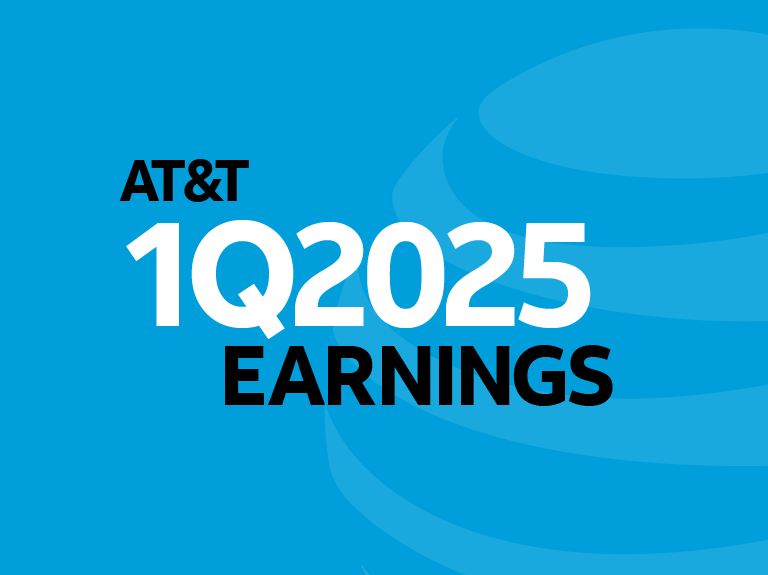AT&T Chief Executive Officer John Stankey Updates Shareholders
AT&T Chief Executive Officer John Stankey Updates Shareholders
John Stankey, chief executive officer of AT&T Inc.* (NYSE:T), spoke recently at the Goldman Sachs Communacopia Conference where he provided an update on the company’s operational and capital allocation strategies.
Focus on strategic growth opportunities. Stankey acknowledged the material impact the current economic backdrop has had across multiple industries. He said the subsequent changes in consumer and business behavior have accelerated AT&T’s focus on aligning its business and investments towards key structural trends across several of its end markets. The company’s strategic areas of focus are improving broadband connectivity (fiber, 5G), developing software-based entertainment (HBO Max, AT&T TV) and leveraging WarnerMedia’s legacy of fantastic storytelling to engage consumers and gain insights across multiple distribution points.
Stankey said the company remains focused on its efforts to align its operations to support its strategic objectives while emphasizing customer experience, effectiveness of its engagement efforts and operational efficiency. As part of these efforts, AT&T is enhancing its strategy to increase customer engagement across media and distribution products that drive customer value and align with AT&T’s brand positioning.
Simultaneously, the company is working to optimize the returns of business lines that fall outside of its focus areas. Stankey said this process may lead to further monetization of non-core assets in AT&T’s portfolio. At the end of the second quarter, AT&T had more than $500 billion in assets on its balance sheet, giving it additional opportunities to drive incremental shareholder value.
Network improvements provide the foundation to compete in evolving wireless market. Stankey said that he sees the company as well positioned to compete in a competitive — and evolving — wireless industry. He believes the company’s significant investments over the past few years have contributed to improved network quality and expanded capacity. AT&T was recently named the “Best Wireless Network” for the third year in a row.1 The combination of nationwide 5G with further investment to expand its fiber network, gives the company confidence in its ability to retain its existing customers as well as attract new customers. In addition, Stankey said that he expects the ability to bundle wireless services with HBO Max will further support AT&T’s acquisition and retention efforts since recent activity suggests bundling is helping support uptake of the company’s higher-ARPU unlimited wireless plans.
HBO Max progress continues with increased engagement. Stankey is pleased with the initial performance of HBO Max, which contributed to an increase in total domestic HBO and HBO Max subscribers in the first half of 2020 and helped the company reach its subscriber target earlier than expected. The company had originally projected a total of 36 million HBO and HBO Max domestic subscribers by year-end 2020. He reiterated that HBO Max has generated solid levels of viewer engagement, as reflected in significantly higher weekly viewing hours than for HBO Now, and noted that AT&T customers had higher levels of HBO Max engagement and activations. AT&T believes it has additional opportunities to engage viewers both as it scales its direct-to-consumer offerings and works with theatrical release partners to explore distribution models. As previously announced, AT&T is also developing an advertising-based version of HBO Max to support its customer acquisition and engagement goals.
Broadband accessibility. Stankey said that the COVID pandemic has further illustrated the need for universal broadband — not just to address the educational needs of America’s students and help charge the economy, but also to create opportunities for entirely new markets. He said that private investment to build broadband networks has been largely successful. However, he believes that strategic collaboration with and investment from the federal government will help provide universal access to broadband.
Confident in resilient businesses and strong cash flows to support financial commitments. Stankey reiterated that AT&T remains confident in the resiliency of its wireless, broadband and business connectivity operations even with an otherwise challenged economic backdrop. He said that the COVID pandemic has underscored the need for high quality connectivity empowering customers — both consumers and businesses — to take advantage of the significant network improvements made over the last few years. Stankey also said that even with limited visibility into the longer-term economic effects and duration of the COVID pandemic, the company remains confident in its ability to generate strong cash flows to support its financial commitments, including its dividend policy and further debt reduction.
AT&T has provided guidance that it expects a dividend payout ratio at year-end 2020 in the 60s% range, and it is targeting the low end of that range.2 At the same time, the company plans to continue to focus on lowering its net debt to strengthen its balance sheet and will remain opportunistic around opportunities to further improve its borrowing costs. AT&T has reduced net debt by about $30 billion since the close of the Time Warner acquisition. The company’s debt maturing within 4 years has been reduced by about $23 billion in 2020, an improvement of about $8 billion since the end of the second quarter.3 And it expects to close this month an exchange offer for 42 series of notes with maturities from 2031 to 2058 to take advantage of favorable market conditions and adjust its debt maturity structure.
AT&T plans to announce third quarter 2020 earnings on Thursday, October 22, 2020.
1GWS OneScore, September 2020. Based on overall national wireless performance.
2Free cash flow dividend payout ratio is total dividends paid divided by free cash flow.
3Excluding commercial paper.



